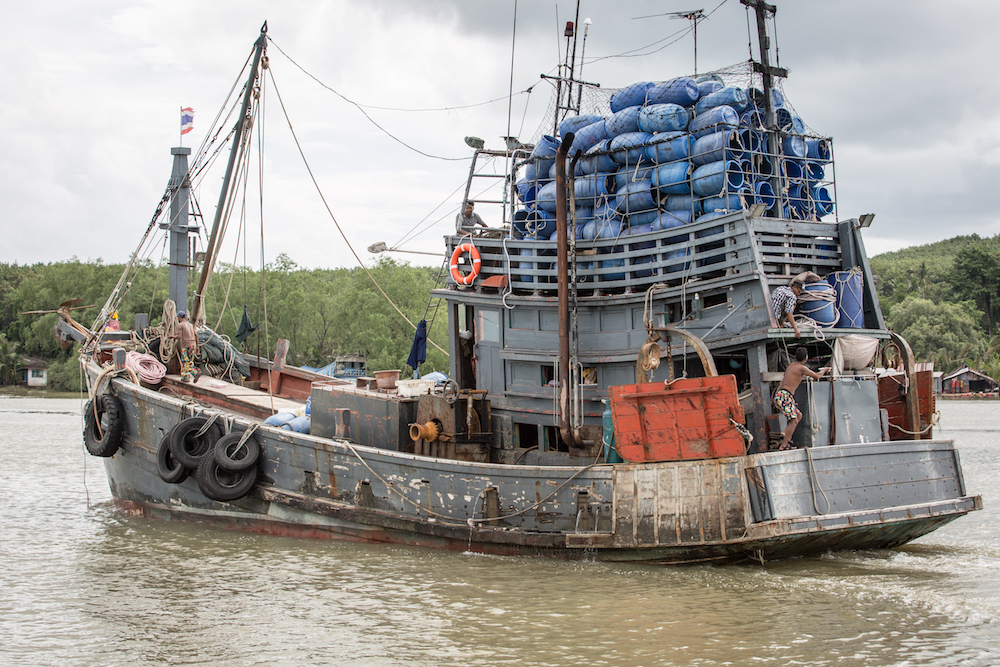
Spectre of abuse and illegal fishing rises again in Thailand as industry association lobbies government
In a closed-door meeting with the government, the National Fishing Association of Thailand has presented a series of demands that would derail the reform of the country’s fisheries, the Environmental Justice Foundation’s sources have revealed. This would likely return the country’s fleet to its abusive and illegal past, endangering the country’s economy, fish stocks and international reputation, says EJF.
The first of NFAT’s demands is that all restrictions on crew and catch transfers at sea be lifted. EJF argues that this would allow abusive vessel owners to swap enslaved migrants between vessels so that they almost never made landfall, with virtually no chance of escape or detection by the authorities. Numerous such cases were documented in Thai fisheries before the current reforms were implemented.
It would also allow operators to launder illegally caught fish between boats so it was no longer traceable, allowing it to make its way into international supply chains undetected.
EJF has been joined by 35 other organisations – including major retailers, suppliers and NGOs, such as Sainsbury’s, Waitrose, Morrisons, Lyons Seafoods, Greenpeace and Oxfam – who are presenting a letter to Thailand’s prime minister condemning the demands and urging the government to protect reforms.
NFAT also want to be allowed to fish for much longer and for the obligation to record exact fishing locations to be dropped. Vessels that lost their licenses in 2015 should be allowed to return to fishing, they claim. Many of these were sanctioned for illegal fishing, others were ‘ghost vessels’ with the same registration documents as legitimate vessels, and almost certainly using this confusion of identity to cover illicit activities.
Other demands follow the same theme – making the fishing industry less transparent and accountable. The annual inspection of vessel and crew should be abolished, NFAT says, age restrictions should be relaxed, and operators should be allowed to revise crew lists for many hours after leaving port. This would allow unregistered crew – potentially trafficked migrants – to board after vessels have passed through ‘port-out’ inspections.
EJF’s Executive Director Steve Trent says:
“The reforms brought in by the Royal Thai Government have had a hugely positive impact on Thailand’s fisheries and the entire region of Southeast Asia. They have been crucial to the country’s economy, fish stocks and international reputation. They must not be lost to the self-serving, short-term interests of a few rogue companies in the form of NFAT. What possible reason is there for scrapping these safeguards other than to obscure the fact workers’ human rights and national laws are being disregarded?”
“The underhand nature of the meeting is also a grave concern,” Trent adds. “Thai fisheries are crucial for an immense number of the country’s citizens. The government must ensure that the reform process is transparent and includes all stakeholders – from the commercial sector, seafood suppliers and processors, small-scale fishing communities, civil society NGOs and academia.”
EJF also highlighted that key business networks – including the Thai Chamber of Commerce and Thai Fishery Producers Coalition – have recognised the reforms as a turning point for Thailand’s fisheries sector that helped secure renewed trust from many import countries.

